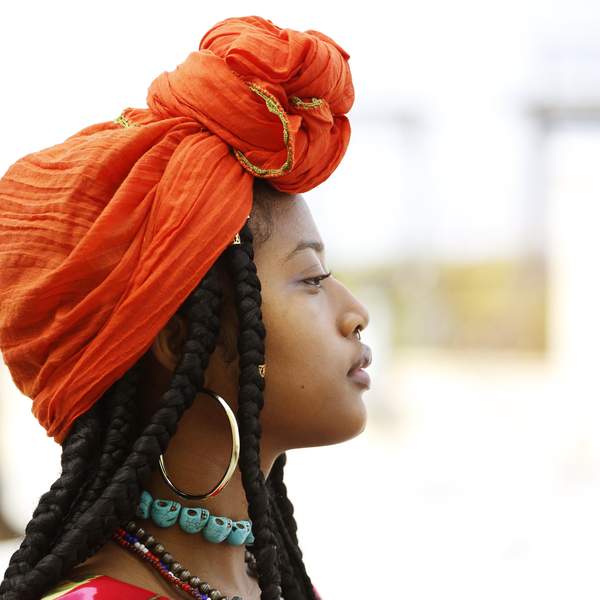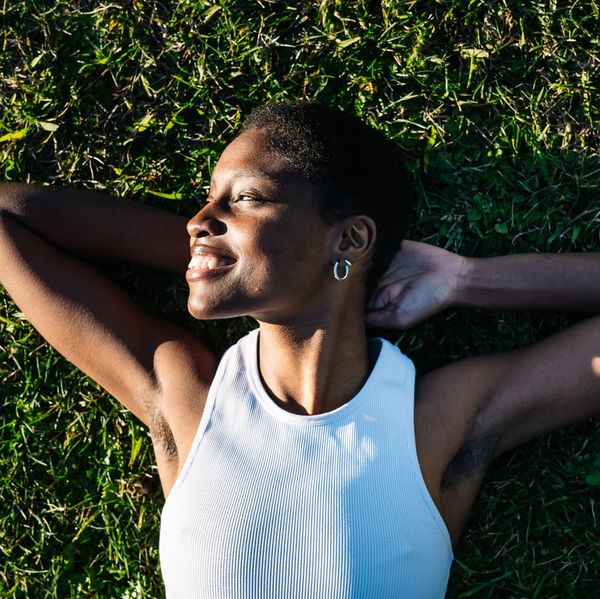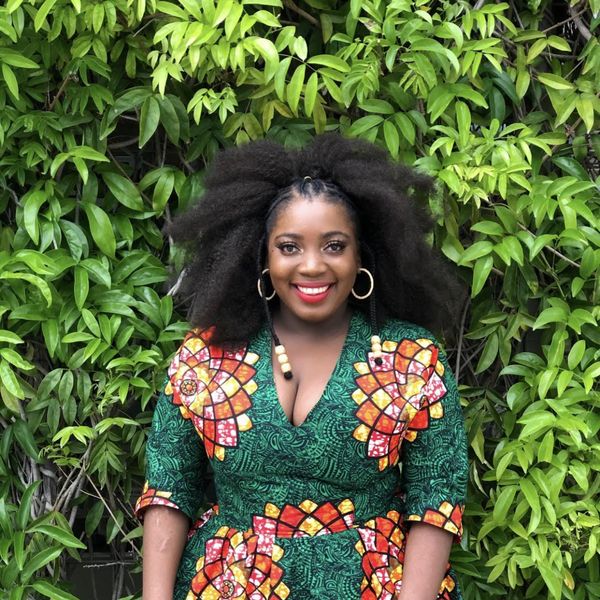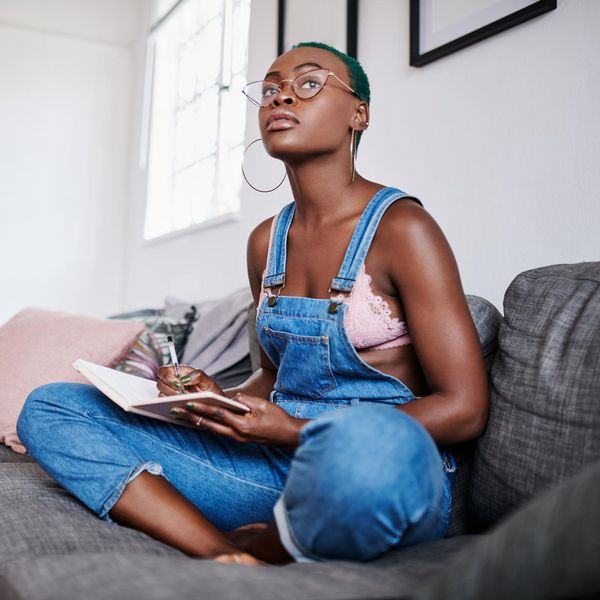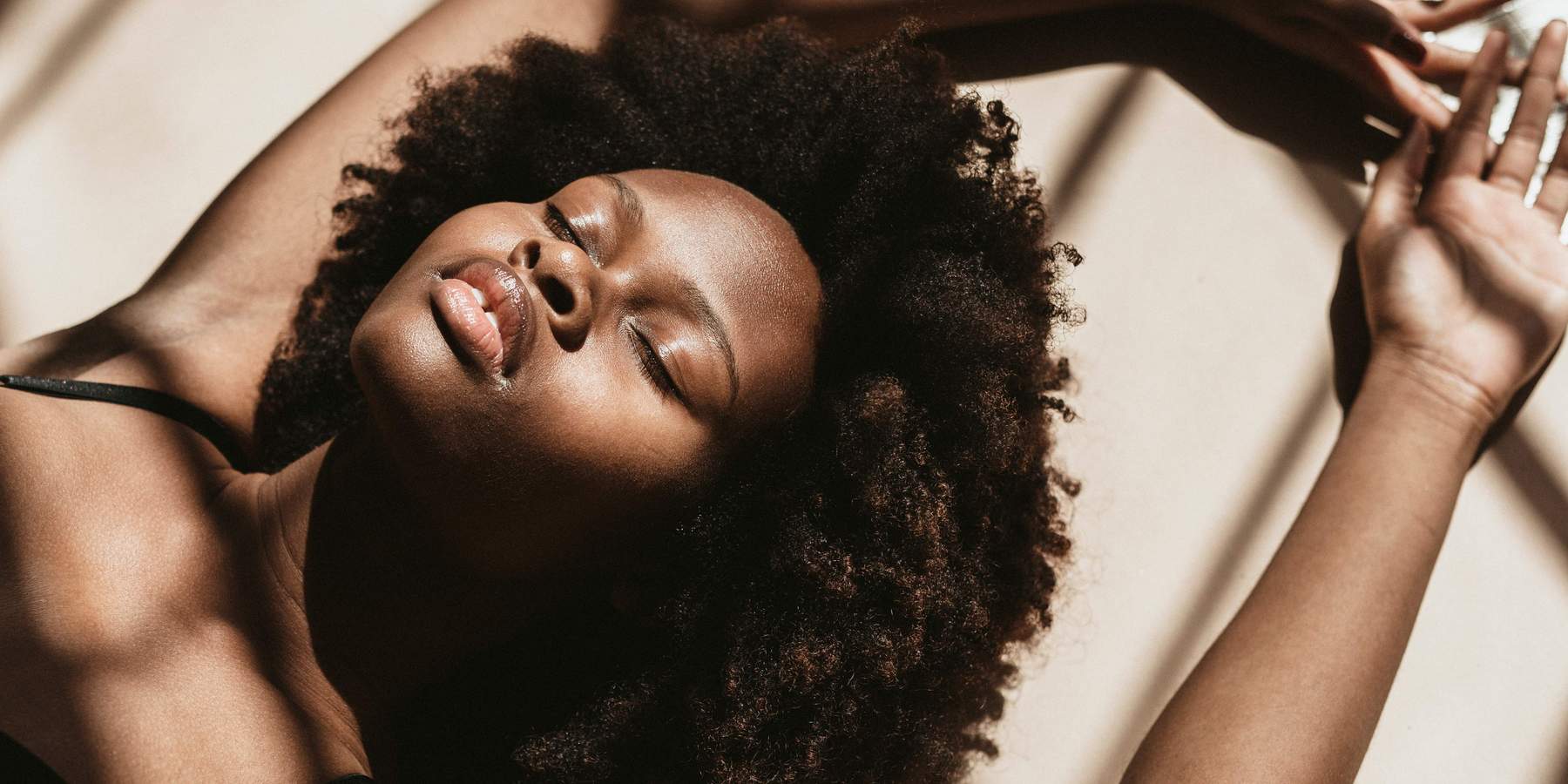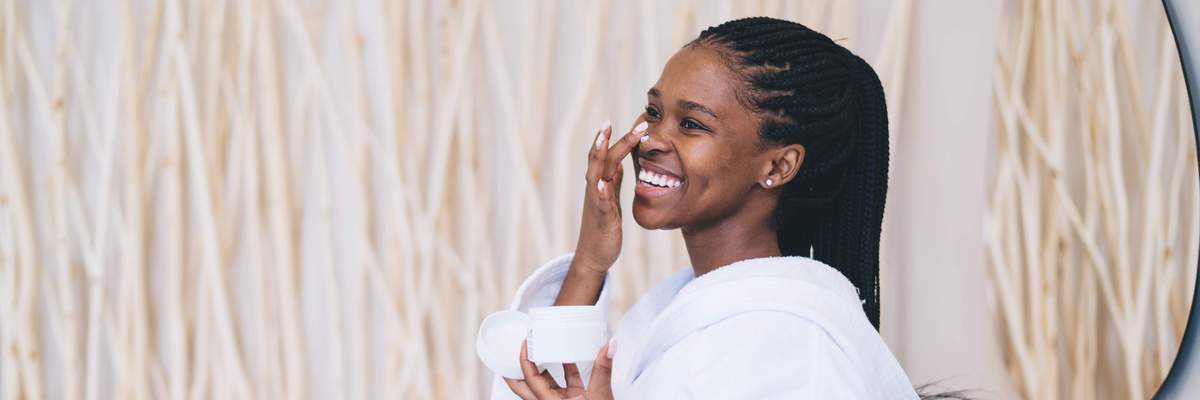Something that I am really big on is doing things that will heighten self-awareness and tap into a deeper level of emotional intelligence. One thing that is sure to do that is self-introspection and one of the best practices for that is to ask yourself questions. While I’m pretty sure that, just like me, you can’t believe that we’re headed into — what in the world?! — 2022, before your calendar officially ushers in January 1, pull out one of your journals (‘cause I know you’ve probably got more than one) and ask yourself the following seven questions. If you’re serious about answering them, it could provide you with just the clarity that you need in order to move fully forward into a brand-spanking new year.
7 Self-Reflection Questions to Prepare for the New Year
1. “Did I Accomplish All That I Set Out to Do This Year?”
Something that I personally find to be pretty unfortunate is how so many people think that focusing solely on their looks is what will make them feel good about themselves when it’s actually setting goals and reaching them that will take their self-confidence to an entirely new level. Keeping that in mind, when you reflect on these past 12 months, what did you accomplish that you are truly proud of? For instance, for me, I set out to make real and complete peace with how some of my past trauma and poor decisions as a result of said trauma have resulted in some of my current outcomes.
An example? Being sexually molested as a child and teen definitely played a role in my abortions (long story) which resulted in years of healing which resulted in my being in my late 40s now with no children. I am not someone who will say I don’t have some regrets tied into all of this (check out “Why Regret Might Not Always Be A Bad Thing”) because I do. Regret means remorse and having remorse is a good thing. Anyway, even though my cycles (periods) are still on-point and I’ve got more than a few good eggs (I roll my eyes at my doctor whenever we discuss it), I’m at peace with not being a mom now — partly by circumstance and partly by choice. And because I set out this year to get to this space, I now look at where I am in life as a new season rather than replaying so many woulda-coulda-shouldas. And yes, that is a big accomplishment in my world because I am confident that I will make decisions out of wholeness, not fear.
I’m sharing all of this to say that an accomplishment doesn’t have to be professional or even huge. It just needs to be something that you wanted to get done and you did. When it comes to what you said you were going to focus on in 2021, what can you put a gold star on with pride? Whatever it is, pat yourself on the back. You’ve earned it.
2. “Am I As Devoted to My Purpose As I Need to Be?”
Let me tell you two things that I will fight to the death over — my purpose and my peace of mind. I don’t care what person, place, thing, or idea is trying to stand in the way, if you’re not an “ally” in those areas for me, you’ve gotta go. You just do. That’s how loyal I am when it comes to why I was put on this planet and what kind of mentality I need to have in order to manifest my purpose on a daily basis.
You know, one of the worst things that you can ever do with your time and really, your life overall, is to never really know, with complete clarity, what your purpose is (check out “5 Signs You Are Living Your True Purpose” and “How To Handle ‘Purpose Fatigue’”). The next thing is to allow so many other things to distract you that you never end up fulfilling it. Only you know if you’ve been as loyal and committed to the reason why you were put on this planet, to begin with. The good news is if you haven’t been, there is no time like the present to do some serious and significant rerouting. Make sure that you bring peacefulness along with you. Your purpose will not fulfill itself without it.
3. “Am I Spending? Or Investing?” (Across the Board)
I recently saw a tweet where someone was saying that we should stop investing in people who don’t really care about us. My immediate thought was, “If you’re not in something that consists of consistent reciprocity, you aren’t ‘investing’, you are spending. And honestly, you actually could be wasting time, resources, energy, etc.”
Mark 2:22(NKJV) says, “And no one puts new wine into old wineskins; or else the new wine bursts the wineskins, the wine is spilled, and the wineskins are ruined. But new wine must be put into new wineskins.” This basically means that it makes no sense to put what is new into what is old because you’ll end up wasting (some of) it. Matthew 7:6(NKJV) says, “Do not give what is holy to the dogs; nor cast your pearls before swine, lest they trample them under their feet, and turn and tear you in pieces.” For the record, one definition of swine is “a coarse, gross, or brutishly sensual person”; another is “a contemptible person”. When dealing with “swine”, it doesn’t know how to value you because, well, it’s swine.
So yes, when you put these verses together and you apply them to this particular question because time is short and life is far too precious, it is absolutely imperative that you reflect on who and what are actual investments and who and what is actually causing you to spend without getting much of a return or waste without anything to show for it at all. I don’t care if it’s personally or professionally, familial, platonic or romantic — you deserve to have people invest in you as much as you choose to invest in them. Is that currently happening in your life or…not?
4. “Who Do I Need to Get Closure From?”
The more I talk to people who prefer to ghost someone rather than get closure with them, the more I have come to the personal conclusion that far too many people function from a place of fear. A part of the reason why I’m such a fan of closure is because I communicate for a living and, even when something comes to an end, I think the dignity of communicating is important. Another reason is because oftentimes, bitterness, resentment, and unforgivingness can reside in people for years because they assume about what led to the breakdown of a relationship or situation rather than getting the information that will help them to truly know. And finally, and perhaps most importantly, the people in your future — the ones who have absolutely nothing to do with what someone else did to or didn’t do for you — deserve you getting closure so that they don’t have to overcompensate in areas that are absolutely not their issue or fault.
My dad took his life almost eight years ago. The amount of people who hurt him over the course of his life is endless. Some of those same people have hurt me, so I get it. Yet his approach was to ghost, internalize and use substances to ease the pain. Mine was to confront as many as possible to, at the very least, get the reasons behind why they did what they did. And because I got that closure, I know to not expect every person to be like those people. I know not to put a residue of pain onto everything. I also know the kind of foolishness that is in my bloodline, on both sides, that I absolutely and proactively need to avoid.
It takes courage to get closure. There ain’t no way around that. However, I am a personal testament to the fact that getting it is better than running from it. Standing firm rather than running is better across the board, actually. That’s another article for another time, though.
5. “Where Am I Spiritually?”
You can check out articles that I’ve written for the site like “What's The Difference Between Being 'Religious' And Being 'Spiritual', Anyway?”, “7 Signs You're Spiritually Compatible With Someone”, “7 Spiritual Principles About Sex That Married Couples Should Never Forget”, “Here's Exactly How To Start Protecting Your Spirit” and “I’ve Got Some Ways For You To Start Pampering Your Soul” and know that when I speak of “spiritual”, I am not talking about religion. What I do know, though, is if you don’t put your spiritual health and well-being above, pretty much anything else, everything else will suffer — if not immediately, eventually.
And just what are some telling signs that you are in a good place on the spiritual tip?
- Prayer and meditation are consistent practices.
- You function from a place of boldness rather than fear.
- You respond more than react.
- You would rather be happy than right.
- You know how to take accountability for your actions.
- You extend the kind of mercy and grace that you wish to receive.
- You make time for creativity.
- You see humility as a strength, not a weakness.
- Empathy and compassion are important to you.
- Your vibration is high.
If there’s one thing that this world doesn’t want you to be, it’s spiritual. After looking at some of these signs of spirituality, I’m pretty sure you can see why. As you think back on this past year, where did you flourish spiritually and where is there still a lot of room for improvement? Focusing on even one of these 10 things can make you such a better person. That, I can guarantee.
6. “Where Can I Improve When It Comes to Self-Care?”
Please sis, if you don’t do anything else in the upcoming year, free yourself from the bondage of thinking that maintenance is pampering. I speak from very up close and personal experience when I say this too because, prior to getting pedicures and waxes on a monthly basis, I used to see those things as a way to pamper myself. Nope. Those are maintenance. Pampering is about being self-indulgent for no other reason than you are worth it.
I believe that’s a good way to introduce this particular question because self-care is so paramount. And yes, it includes consistent maintenance, pampering, and also doing whatever will keep your mind, body, and spirit thriving. When it comes to what self-care actually means, one wise person said, “Be enough for yourself. The rest of the world can wait.” A mental health expert by the name of Katie Reed once said, “Self-care is giving the word the best of you, instead of what’s left of you.” And civil rights leader Audre Lorde once said, “Self-care is not self-indulgence; it is self-preservation.” Shoot, even Christ himself has gone on record as saying, “Love your neighbor AS YOURSELF.” (Mark 12:30-31)
If you look up dictionary definitions of self-care, you will see words like “soothe,” “comfort” and “attending to one’s physical and mental health.” There are a lot of us who run on fumes, constantly, because we are finding ways to do these things for everyone and their grandma but ourselves. Shoot, some of us even struggle with feeling guilty for even contemplating putting ourselves on the top of our “care” list. If you are one of them, don’t. You can’t be your best genuine self without self-care and yes, that includes pampering. If you didn’t do it enough last year, make it the ultimate priority in the year that lies ahead.
7. “What Can I Do to Avoid Experiencing a ‘Rerun Life’?”
Y’all, I haven’t watched that Sex and the City reboot. For what? I barely even watch the reruns of the original show now…because I’ve pretty much outgrown them. The entertainment and sometimes ah-ha moments that they provided many moons ago, they don’t now. I’m a different person. I’m in a different headspace. What’s next? WHAT’S NEW? (Yes, I am yelling it because all of these reboots, chile, are doing THE most!)
A lot of my life is similar. These days, very few people, places, things, and ideas from my past hold my attention. Not because they didn’t serve their purpose or at least a reason — whatever that was — at the time; it’s just...very few people, places, things, and ideas are just so monumental to me now that I want to replay them over and over again. Sometimes I reflect for nostalgia’s sake and that’s cool. Other than that…again, what’s next? WHAT’S NEW?
Whenever I think of a “rerun life”, I think of that doggone hamster, running for dear life, in a wheel that is getting him absolutely nowhere. Listen, I don’t care if it’s at work, at home, in your friendships, when it comes to your spending habits, your church life, your health, sex, communication — y’all pick one…if you know that you are in your own hamster wheel, right now, jot down some ways where you can break all the way out in 2022. It makes absolutely no sense to spend (or is it waste?) all of that time, effort, and energy, blood, sweat, and tears on stuff that really isn’t getting you anywhere…isn’t expanding the quality of your life.
2022 is right up the street, y’all. The answers to these questions can help you to enter in on a higher plane. And who doesn’t deserve that? New year. New you. Let’s do this!
Featured image by Getty Images



